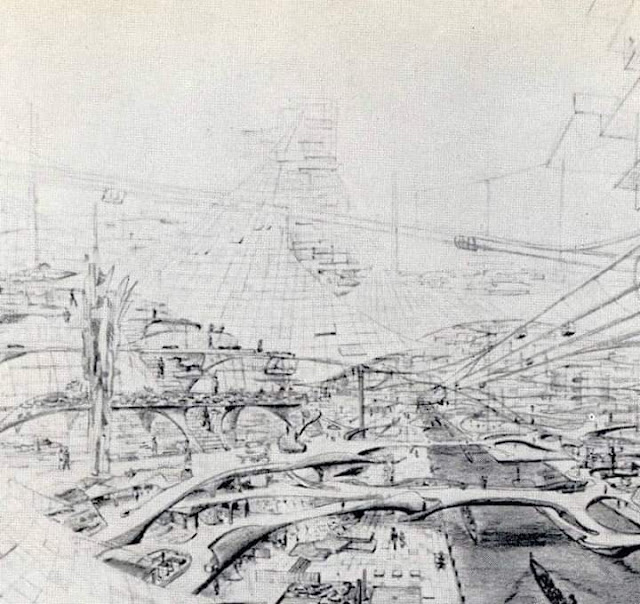DIDACTIC ARCHITECTURE
"On the contrary, sharing values, designing for change and permanence, and coordinating distributed design responsibilities, demands not only great sophistication in designing but also promises an architecture that will be more lively and dynamic and complex than has been seen in the past. It will be an architecture in which the permanent is truly structural and meaningful and the short-lived full of energy and surprises; where form is thematic in unending variation and renewal, and where the act of designing is significantand respected on all levels of intervention. This new architecture demands both invention and talent to come into its own." -Habraken
Habraken is concerned with the direction architecture is or will take in the coming future. The role of the architect is central to his questioning. The quote above reinforces the impact and creativity in the outcomes of the proposed evolution of architecture and the architect's role. He points to independent architectural research as a way to bridge the gap between academia and practice (which is well underway?). There is more opportunity than that to change course and lead to the prescribed outcomes above. Firstly, architects should disperse some of their roles, needs, and power... what have you, to be democratic while simultaneously advocating for the control of form and urban management (or cooperation with urban planners).
This is not to make architects autonomous or design czars outright, but rather to provide a loose order within the chaos of the built environment for a more sustainable future for all. The above may sound utopic, and it is, but this is for an ultimately more democratic/community-driven built environment. Utopia always gives way to reality. The Modernists just used an iron fist to push their ideals forward. I believe the solution lies in architects being more apolitical on a large scale but very intentional at a small scale to clearly inform large-scale cultural transformation.
Changing the built environment through technological means of architecture is that of yesteryear, real and lasting change will come from change in the role of the architect.



"I believe the solution lies in architects being more apolitical on a large scale but very intentional at a small scale to clearly inform large-scale cultural transformation".
ReplyDeleteYou succinctly describe the issue I've been having with architecture (and architects). Well put. I think that a lot of this distribution of power could come from 'Designing for Change' as Cote 10 put it. Habraken describes that this can be done by giving spaces expiry dates before they would need a remodel, ensuring low-cost and easier maintenance. I'm not sure that I see the connection between these ideas but I think it is a concept that would be beneficial to universally adopt.
While I personally believe technology will still continue to be a driving force of change in the built environment, I also agree with you that the profession needs a push from another angle, particularly in redefining the architect's role, to truly change itself and our built environment for the better. The role of the starchitect, our profession's most prominent public figureheads, has always been inherently political. I think back to the TED talk by Bjarke Ingels we had on our assigned materials. It occasionally felt like a campaign speech. When the profession is glamorized like that, it's benefitting the profession, but it's not why the world needs the profession necessarily.
ReplyDelete